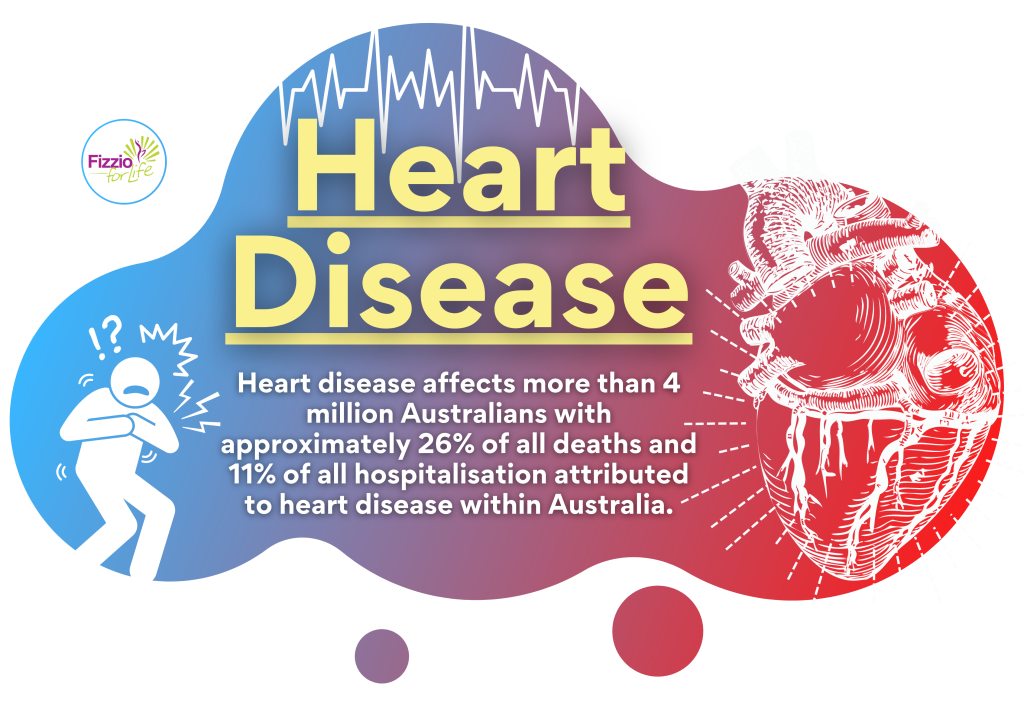
Heart disease or cardiovascular disease (CVD) is a term that includes conditions that affect the heart and blood vessels such as coronary heart disease, heart failure, arrhythmias, angina, and others.
Heart disease affects more than 4 million Australians with approximately 26% of all deaths and 11% of all hospitalisation attributed to heart disease within Australia.
Heart disease kills 40% more men than women each year with men more frequently admitted to hospital with heart disease each year and men twice as likely to have a heart attack than women. When thinking of heart disease and heart health some of the symptoms include:
- Sense of discomfort in chest lasting more than 30 minutes
- Unexplained pain in chest, neck and jaw
- Irregular heartbeat
- Dizziness or fainting
Men are often known to neglect their health either by thinking it won’t happen to them or ignoring symptoms with a ‘she’ll be right’ attitude. Men are known to put off going to the doctor or health professional when they do have signs and symptoms when a visit could set them on the road to better health. It’s important for men to keep in mind when it comes to heart health and their overall health that it’s not just for themselves but their family that is impacted as well.
Risk Factors for Heart Disease
- High Blood Pressure
- High Cholesterol
- Diabetes
- Smoking
- Obesity
- Depression
- Physical Inactivity
Exercise is great for the heart as the heart, like any muscle, can benefit from exercise and improve in function. This plays a positive role in the prevention of CVD as well as to rehabilitate after a cardiac incident. When the heart becomes stronger it becomes slower which often reduces blood pressure. Some of the other side effects of exercise apart from cardiovascular benefits are improvements in physiological health as well as bodies ability to process cholesterol and blood sugar all of which contribute to reducing the risk factors for developing heart disease.

